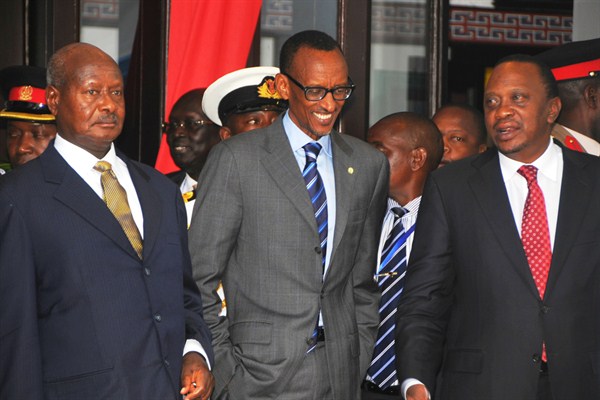KAMPALA, Uganda—When a young Yoweri Museveni launched his rebellion to seize Uganda’s presidency in 1981, he found a vital ally in an exiled Rwandan soldier named Paul Kagame. The former guerilla leaders have been presidents of their respective countries for 33 and 19 years now, but their relationship has soured since those early days during Uganda’s Bush War.
Tensions escalated sharply earlier this year, as both men hurled accusations of sabotage, and Rwanda sealed its border with Uganda, halting trade and issuing a travel advisory. In August, Kagame and Museveni met in Luanda, Angola to sign a memorandum of understanding meant to end their standoff and repair relations. But observers are skeptical that it will work.
The brinkmanship between Rwanda and Uganda has already taken an economic toll. The Ugandan Ministry of Trade recorded millions of dollars in losses, resulting from the border closure, as of July. Uganda has also accused the Rwandan government of effectively imposing a trade embargo.

